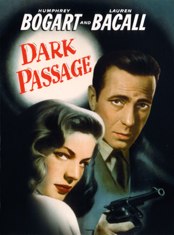The First Person

I’d like to like Half-Life 2. I’d like to finish Portal. I wouldn’t mind trying a bit more Call of Juarez even, but they all make me sick. Motion sick. First I blamed the games, then I blamed myself. Then I read a lot of other people had the same problem with the Marathon Xbox Live port.
First Person makes we sick
Then I read this, in an interview with Ryan Payton, a developer of Metal Gear Solid 4:
So, obviously, the first-person perspective is something that the Japanese have a hard time with, because they actually get a lot of motion sickness … What I’ve found is that my Japanese colleagues will play Gears of War every weekend for three months, but they’ll play Halo for maybe a day or two and they’ll get sick from motion sickness. [emphasis added]

So at least the entire nation of Japan shares my disability. It’s not just me. In fact, it’s not even just me and Japan. From this Looniegames article: “there is research from the military that shows that between 20% and 40% of tested pilots experienced some form of simulator sickness following exposure to a flight simulator.” That’s in fact where the phenomenon first cropped up, and got its technical name: simulator sickness. The working theory is that like motion sickness, the feeling is caused by a disconnect between the senses. In the case of games, your eyes tell you that you are moving through a virtual world, but your inner ear knows you’re sitting on your fat ass on your couch. The exact ways that the game presents itself play into the disconnect. Lag between player input and resultant action on screen is one factor, but I’m convinced that the wide camera angles in games like Half Life 2 and Portal are what prevent me from playing them, whilst I have no problem with the Halo series.
First person is not how we see
At the root of the sickness is a profound oversimplification of human perception in first person games. Sure, our eyes are in our head, so first-person shooters take that literally and reproduce that view. But take a look at this passage from this article:
In his “rest frame hypothesis,” Jerrold Prothero states that the human brain processes sensory information to form a mental image, in which we know which objects in our environment are stationary as we physically move through it. Our subconscious perception of these stationary objects helps us maintain a sense of balance. If this internal model is disrupted, simulator sickness can happen.
If Prothero’s theory holds true, game makers could help players reduce sim sickness by including a visually noticeable object in a game’s environment, which cannot be ignored and which doesn’t move on the screen much, if at all. That would explain why games set in a third-person viewpoint, like the Tomb Raider games, as opposed to a first-person shooter don’t cause sim sickness as readily. (Who would have thought staring at Lara Croft’s butt could be good for your health?)

It’s a lesson that could have been learned from film. When I was in film school, a professor showed us a picture, Dark Passage, in which the entire first reel is shot in first person style. It illustrated perfectly why the style doesn’t work: it’s disorienting and confusing. That was her way of leading into a discussion of point of view in cinema. You can certainly show things from a character’s point of view in a film, and in fact it’s an effective way of building the audience’s connection to a character, but you intercut it with shots of the character who is seeing those things. (See No Country for Old Men as a contemporary example, or nearly anything by Hitchcock.) This is the way film builds your mental image of the virtual world, and ironically puts you more in the shoes of the character than if you literally put the camera where their eyes should be. Since that’s not how we see. We see by forming a model of the world in our heads.
The game equivalent of film POV is, then, is the third person viewpoint. It accomplishes the same thing.
First person is confusing to newbies
We hardcores hail the Halo dual-stick FPS control scheme as intuitive. But I’ve tried to force Halo on enough non-gamer friends to know that it is far, far from it. And the lack of any character on screen to ground the action makes first-person games far harder to control than even a  dual-stick-controlled third-person game. We all know that casual players don’t play first person games, hell it’s practically part of the definition. Not that casual players play much in the way of any shooters, but given that games like Syphon Filter, SOCOM, Gears of War and Ghost Recon (hell, even Saints Row ) have shown that you can have a perfectly awesome third-person shooter, why limit the appeal of any game by going first-person? Why potentially scare newbies off games in general?
dual-stick-controlled third-person game. We all know that casual players don’t play first person games, hell it’s practically part of the definition. Not that casual players play much in the way of any shooters, but given that games like Syphon Filter, SOCOM, Gears of War and Ghost Recon (hell, even Saints Row ) have shown that you can have a perfectly awesome third-person shooter, why limit the appeal of any game by going first-person? Why potentially scare newbies off games in general?
Again, I’m a guy who can still play and enjoy most FPS games. But it’s just frustrating to miss some, like I can never experience Half Life 2 because of this thing which feels so arbitrary. And I’m starting to get the impression that the first person viewpoint might simply be a passing evolutionary stage; games’ early, tentative step into the third dimension, soon to look as archaic as films made before the invention of editing now do to modern eyes.
Afore I go, during my research for this article I did run across some tips on alleviating simulation sickness, so I might as well add them here.
- take ginger pills, chew ginger or drink ginger beer
- make sure the room is well lit, especially behind the screen
- lower the brightness on your display
- motion sickness pills like dramamine or gravol will work, but they’ll also put you to sleep
- hang a picture of David Hasselhoff from your genitals
OK I made that last one up. Aight I’m off to drink ginger beer.
FPS will not die, coz FP Games is the future, imagine walking around the game environement and seeing things the way you see them in real life. Motion sickness cant be helped.
Click here to get free games for your blog and websites
The only game that made me queasy was Timesplitters on the original xbox. I couldn’t play for more than 20 minutes and my night would be ruined.
Yeah, it’s weird, and hard to predict what game will make it happen, or to whom. I could get sim-sick from Oblivion, but only when hung over.